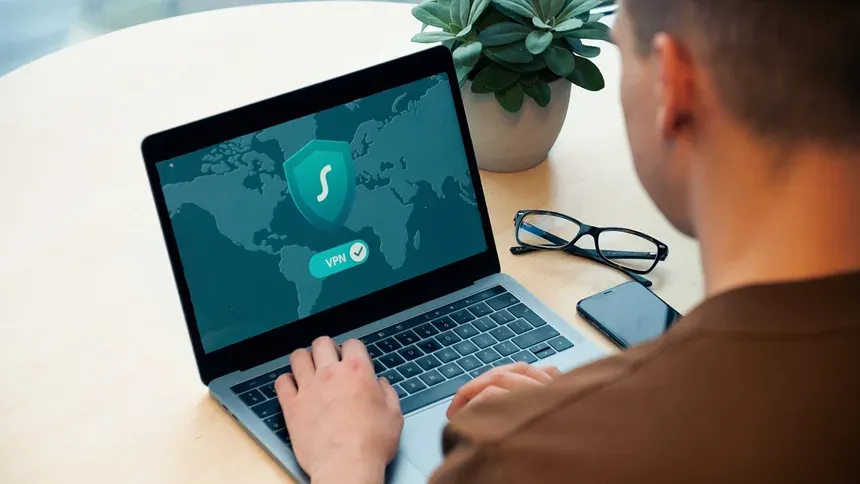Key Differences Between Location Spoofing and VPN Services
In the realm of online security and accessing geographically restricted content, two commonly referred strategies are Location Spoofing and VPNs (Virtual Private Networks). Although these methods may appear quite similar, their functions and mechanisms differ significantly. Grasping the intricacies of both approaches is essential for making well-informed decisions regarding your digital safety and freedom online.
Understanding Location Spoofing

Image Credit: Pixabay.com
Location spoofing is the technique of deceiving applications, websites, or online services into thinking that you are accessing them from a different geographical location. This typically involves manipulating your GPS coordinates or IP address to create the illusion that you are in another city or country.
Methods for Spoofing Your Location
- GPS Manipulation: Certain mobile applications can modify your GPS coordinates.
- Browser Extensions: Proxy-based browser add-ons can disguise your location.
- Proxy Servers: These tools redirect your IP address through different servers, allowing for location spoofing.
Why People Use Location Spoofing
Individuals may resort to location spoofing to gain access to applications restricted by region, sidestep internet blockades, or enjoy location-based games like Pokémon Go. It’s a convenient way to convince websites or applications to provide content restricted to other regions.
What Is a VPN (Virtual Private Network)?

Image Credit: Pixabay
A VPN is a robust tool aimed at not just concealing your location but also safeguarding your online activities. It functions by establishing an encrypted “tunnel”between your device and a remote server managed by the VPN provider. This server might be situated anywhere globally, effectively altering your apparent location while securing your personal information.
Enhancing Security with VPNs
- Data Encryption: VPNs encrypt your entire internet traffic, making it challenging for outsiders to intercept your information.
- Increased Privacy: Your actual IP address is concealed, boosting your online anonymity.
- Data Security: VPNs protect your data from potential hackers, especially on unsecured networks like public Wi-Fi.
How Location Spoofing Functions
Manipulating GPS
Many spoofing applications can alter the GPS signals on your mobile device, leading apps to believe you’re in a different geographical location. Popular tools for this purpose include Fake GPS apps on Android and Mock Location apps.
Additionally, location spoofing can involve changing your IP using proxies. A proxy reroutes your internet traffic, suggesting it originates from a different area. However, proxies do not deliver the encryption features that VPNs provide.
How VPNs Operate
Creating Encrypted Tunnels
Connecting to a VPN forms a secure line between your device and a VPN server. All your data travels through this encrypted tunnel, rendering it unreadable for potential eavesdroppers.
Masking Your IP with VPN Servers
VPNs allow you to choose servers from various regions, effectively hiding your actual IP address. This creates the impression that you are browsing from a completely different locale, allowing for easy bypassing of geographical restrictions.
Distinguishing Between Location Spoofing and VPN
Privacy Aspects
- Location Spoofing: Mainly aims to mimic your location, lacking in hiding your browsing activity or encrypting your data.
- VPN: Encrypts your entire online traffic, providing substantial privacy and obscuring your digital footprint.
Security Features
- Location Spoofing: Lacks strong security measures, with potential risks for data leaks.
- VPN: Provides advanced security through data encryption, particularly beneficial in public network scenarios.
User Friendliness and Setup
- Location Spoofing: Generally simpler and faster to set up, often just involving an application or browser extension.
- VPN: Typically necessitates a subscription to a VPN service and software installation, making it slightly more complex but offering superior protection.
Benefits of Location Spoofing and VPN
Benefits of Location Spoofing
- Access to Region-Locked Content: Excellent for streaming content restricted to specific locations.
- Gaming & Apps: Perfect for modifying locations in location-based games.
- Easy Setup: Requires minimal effort, typically needing just an app or extension.
Advantages of VPN
- Encryption: Guarantees that your data remains private, even on open Wi-Fi networks.
- Bypass Geographic Restrictions: Consistently access global streaming libraries.
- Enhanced Transaction Security: Provides additional security while conducting online transactions.
Drawbacks of Location Spoofing and VPN
Cons of Location Spoofing
- Lack of Encryption: Your data remains vulnerable.
- Risk of Account Bans: Certain platforms may penalize or ban users who engage in spoofing.
- Minimal Privacy: Does not conceal browsing habits or digital presence.
Cons of VPN
- Potential Speed Reductions: The encryption process might slow down your browsing speeds.
- Subscription Costs: High-quality VPNs typically require payment.
- Legal Restrictions: In some areas, the use of VPNs may be limited or prohibited.
Legal Considerations
Legality of Location Spoofing
Generally, location spoofing is legal; however, specific services may impose restrictions against it. Gaming and streaming platforms might take action against users found to be spoofing.
Legality of VPNs
VPNs are permissible in most nations, although a few impose restrictions or outright bans. Always verify local regulations prior to utilizing a VPN, particularly in areas with strict laws.
Internet Speed Impact: Location Spoofing versus VPN
- Location Spoofing: Typically does not hinder speed unless proxy servers are used.
- VPN: Data encryption may result in slower internet speeds due to extra processing.
Selecting the Right Solution: Location Spoofing or VPN?
Your decision should hinge on your objectives:
- Choose location spoofing for straightforward tasks like gaming or accessing region-restricted apps.
- Select a VPN if your main concern is privacy and security, especially when dealing with sensitive information or public Wi-Fi networks.
Best Practices for Safe Use of Location Spoofing & VPN
Location Spoofing Guidelines
- Utilize Trusted Applications: Employ well-reviewed spoofing apps to minimize risks.
- Keep Applications Updated: Regular updates help avoid detection.
- Review App Permissions: Refrain from granting excessive permissions.
VPN Best Practices
- Choose a Reputable Provider: Opt for a VPN service known for its strong privacy measures and no-log policies.
- Select the Nearest Server: For improved speeds, connect to a VPN server located near you.
- Maintain Updated VPN Software: Frequent updates enhance your overall security.
Final Thoughts
Location spoofing and VPNs provide differing levels of privacy, security, and usability. If your goal is quick access to restricted content, location spoofing may suffice. However, if safeguarding your personal information and ensuring online anonymity are your priorities, a VPN would be the superior option. Make your choice wisely based on your specific needs and be aware of each approach’s limitations.
Image Credits: Pcmobitech.com